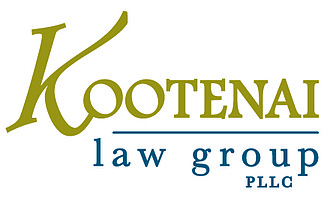Guardianship for adult children with disabilities: When is it necessary?
As your child approaches their 18th birthday, you may wonder whether you need to pursue legal guardianship to continue making important decisions on their behalf. While every situation is unique, here are key considerations to help you determine if guardianship is appropriate for your adult child with disabilities.
Understanding the Legal Change at 18
When your child turns 18, they are legally considered an adult in Idaho. This means they gain the right to make their own medical, financial, and legal decisions — regardless of any disabilities they may have. Without guardianship, you'll no longer have the automatic legal authority to make these decisions, access medical records, or manage their affairs.
Signs That Guardianship May Be Necessary
Consider pursuing guardianship if your adult child:
• Has significant difficulty understanding and weighing the consequences of important decisions
• Cannot reliably communicate their wishes about medical care, living arrangements, or financial matters
• Is unable to manage basic self-care or daily living tasks without substantial assistance
• Could be at risk of exploitation or harm due to their inability to recognize dangerous situations
• Has severe cognitive impairments that affect judgment and decision-making abilities
Alternatives to Consider First
Full guardianship is not always necessary, and courts prefer less restrictive alternatives when possible. Some options include:
Power of Attorney: If your adult child has periods of lucidity and can understand basic legal concepts, they may be able to grant you power of attorney for medical or financial decisions.
Supported Decision-Making: This is an informal arrangement that allows your adult child to make their own decisions while receiving support and guidance from trusted advisors, including family members.
Limited Guardianship: Rather than full guardianship, the court may grant specific decision-making powers while preserving some of your adult child's rights and autonomy.
Evaluating Your Situation
To determine if guardianship is appropriate, consider:
Professional Assessments: Obtain evaluations from your child's doctors, therapists, and other healthcare providers regarding their decision-making capabilities and need for protection.
Daily Living Skills: Assess your child's ability to manage basic tasks like personal hygiene, medication management, and safety awareness.
Financial Capability: Consider whether they can understand basic financial concepts, protect themselves from exploitation, or manage their benefits and resources.
Communication Abilities: Evaluate their ability to express preferences and make informed decisions about their care and well-being.
Next Steps
If you believe guardianship may be necessary:
1. Consult with an experienced estate planning attorney to discuss your specific situation and explore all available options.
2. Gather medical documentation and professional evaluations supporting the need for guardianship. Your attorney can guide you about what is needed specifically.
3. Consider who should serve as guardian — while parents are often natural choices, think about long-term planning and potential successor guardians. Your own age and abilities may inform this decision. Also, know that Idaho allows more than one person to serve jointly as co-guardians.
4. Prepare for the court process, which includes filing a petition, passing a background check, completing an online training program, attending hearings, and working with a court appointed social worker (called a “court visitor”) who will evaluate the proposed arrangement. An experienced attorney should walk you through all of this over the 3 to 4 months it takes to complete the process to become appointed.
Remember, legal independence happens automatically when your child turns 18 — even if you aren’t ready. Don’t wait to learn your options. If you're uncertain about whether guardianship is necessary for your adult child, schedule a consultation with our office. We can help evaluate your situation and guide you through the available options to ensure your child's long-term well-being and protection.
My law firm is currently offering free telephonic, electronic, or in-person consultations concerning adult guardianships, probates, and creating or reviewing estate planning documents.
• • •
Robert J. Green is an Elder Law, Trust, Estate, & Guardianship Attorney and the owner of Kootenai Law Group, PLLC in Coeur d’Alene. If you have questions about estate planning, probates, wills, trusts, powers of attorney, guardianships, Medicaid planning, or VA Benefit planning, contact Kootenai Law at 208-765-6555, Info@KootenaiLaw.com, or visit www.KootenaiLaw.com.
This has been presented as general information and not as legal advice. Do not engage in legal decision-making without the advice of a competent attorney after discussion of your specific circumstances.

